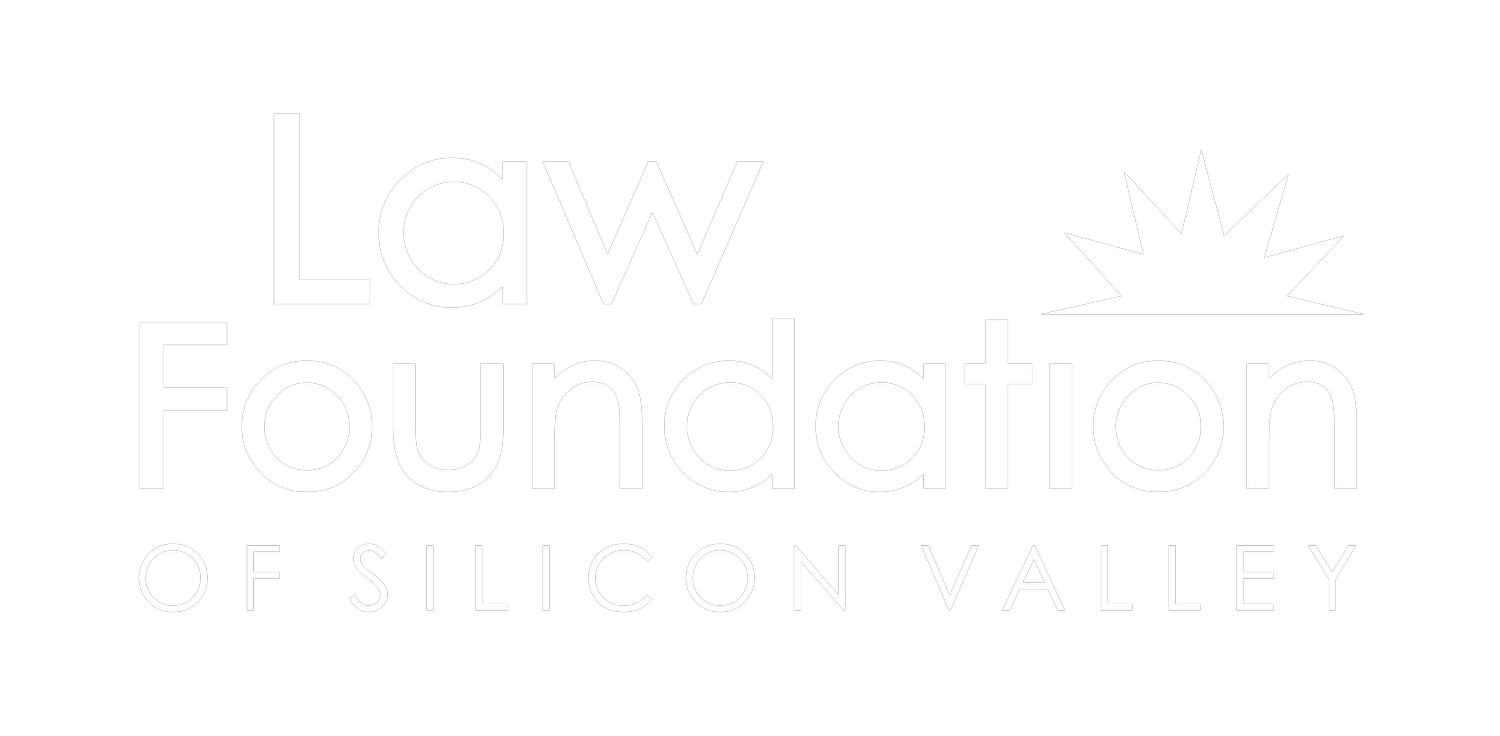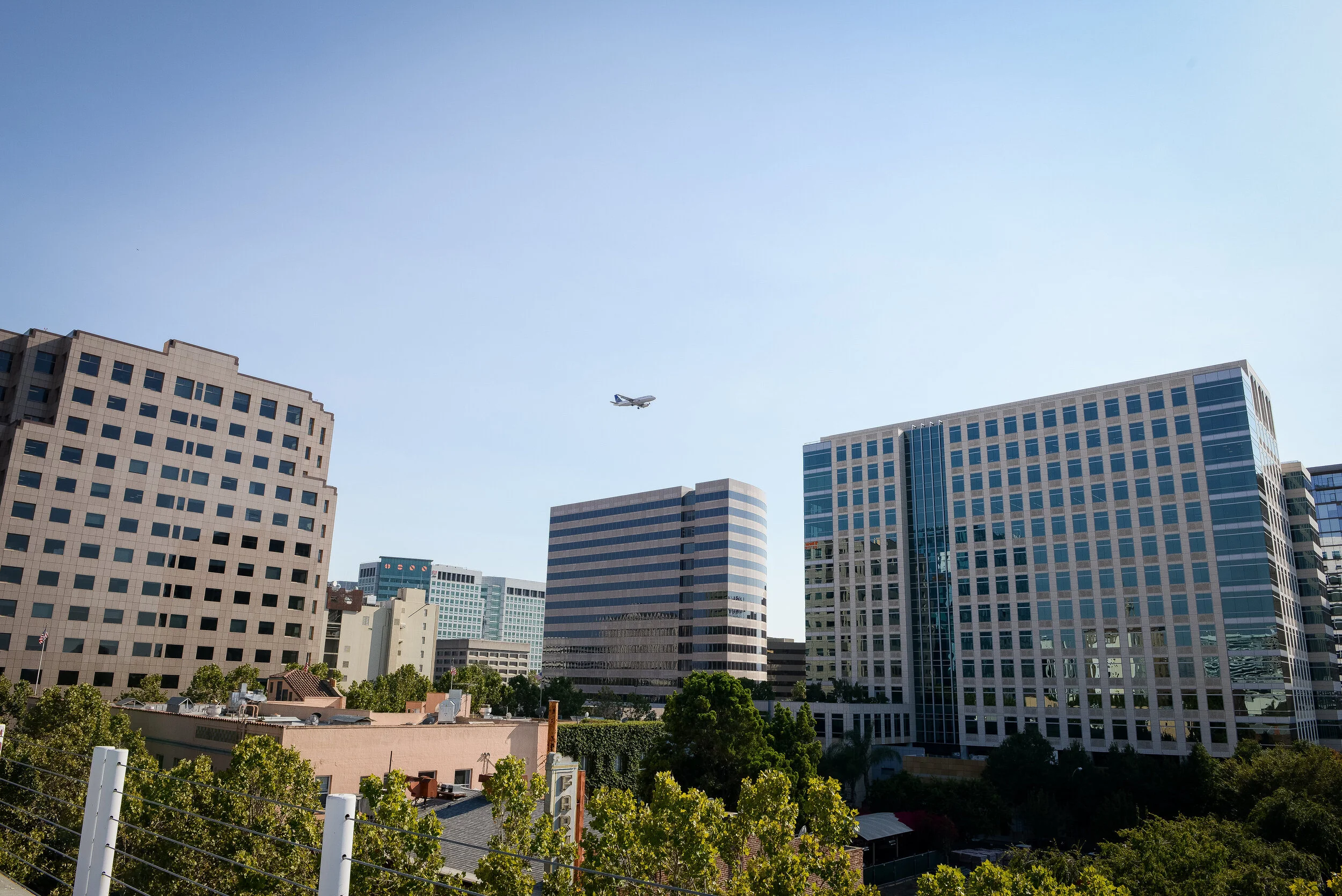Press Release: The Law Foundation Releases Election Platform For the First Time
FOR IMMEDIATE RELEASE (Contacts below)
APRIL 7, 2022
Long-standing Legal Nonprofit in Silicon Valley Releases Election Platform For the First Time
SAN JOSÉ – The Law Foundation of Silicon Valley, a long-standing legal services organization in Santa Clara County, has published its first-ever election platform as a guide for candidates running for local office in 2022. Read the Law Foundation’s election platform here or on its website, www.lawfoundation.org/2022-election-platform.
The election platform outlines policies that should be adopted at the local, state, and federal levels to benefit low-income communities of color throughout Silicon Valley in the areas of housing, health, the unhoused community, and children and youth. The elections platform stems from the community-based advocacy that the Law Foundation engages in every day and includes prioritizing creating more spaces for Black, Indigenous, Latinx, and other people of color to share their needs in policy settings.
“We hear the barriers that low-income communities of color face through the over 10,000 individuals we provide free legal services to every year,” said Law Foundation CEO, Alison Brunner. “The policies in our elections platform address these systemic barriers with the overall goal of a more equitable Silicon Valley. We encourage candidates to commit to advancing these policies when elected and adopting these policies as part of their campaign platforms.”
Policy recommendations in the election platform include:
Housing: Policies rooted in preservation, production, and protection such as expanding community benefits agreements such as the Google Community Benefits Agreement, increasing tenant protections, and passing laws that put back wealth in the community such as the Community Opportunity to Purchase Act.
Health: Reimagining mental healthcare and crisis response, such as removing law enforcement from mobile crisis responses and prioritizing access to quality mental healthcare, as well as eliminating barriers to accessing government disability benefits. Reimagining justice, including removal of carceral settings and better carceral conditions.
Children & Youth: Addressing the disproportionate representation of Black and Latino families in the child welfare system, identifying solutions for children’s access to behavioral health services, and creating a safe environment at schools for all students by eliminating school resource officers from K-12 campuses.
Unhoused Community Needs: Ending the practice of encampment sweeps that further destabilize unhoused people and prioritizing access to healthcare, wrap-around services, and safe alternatives to housing while developing more low-income housing stock.
This year, the Law Foundation has also joined the SV@Home Action Fund and other housing justice organizations to host candidate forums for local elections, focused on affordable housing and our unhoused community.
“The issues our client communities are facing in Silicon Valley demand urgency”, said Ms. Brunner. “Low-income families, our unhoused neighbors, children in foster care – they can’t afford a learning curve. We need newly elected officials to take action from the start if we want to have the greatest impact in communities that have too long been underrepresented and marginalized.”
"The Law Foundation has long been a leader in advancing local policies that improve the lives of low-income families and communities of color in Silicon Valley – such as protections for tenants, people who are unhoused, foster youth, and those with health challenges,” said Kyra Kazantzis, CEO of the Silicon Valley Council of Nonprofits. “This election platform puts the critical and missing voice of low-income families of color into the 2022 local elections," added Ms. Kazantzis.
Read the Law Foundation’s election platform here or on its website, www.lawfoundation.org/2022-election-platform.
###
About the Law Foundation of Silicon Valley
The Law Foundation of Silicon Valley advances the rights of underrepresented individuals and families in our diverse community through free legal services, strategic advocacy, and educational outreach. LawFoundation.org | Facebook | Twitter
More information about the SV@Home Action Fund Candidate Forums can be found here: https://siliconvalleyathome.org/action-fund/candidate-forum-series/
Contacts:
Housing: Nadia Aziz, Director - Nadia.Aziz@lawfoundation.org
Children & Youth: Andrew Cain, Director - AndrewC@lawfoundation.org
Health: Abre’ Conner, Director - Abre.Conner@lawfoundation.org
Unhoused Community Needs: Becky Moskowitz, Supervising Attorney - Becky.Moskowitz@lawfoundation.org
Letter of Support for AB 2632 (Holden): Ending Solitary Confinement
Read Letter PDF
March 29, 2022
Submitted electronically
RE: Support for AB 2632 (Holden)
Dear Assemblymember Jones-Sawyer,
On behalf of the Law Foundation of Silicon Valley, I write in support of AB 2632 (Holden), the California Mandela Act on Solitary Confinement. AB 2632 is an important step in ending the use of solitary confinement in California. There is an established consensus among experts, advocates, and those who have first-hand experience on the issue: solitary confinement is torture and can have permanent deleterious effects on the health of an individual. Many states have passed laws to limit the use of solitary confinement, and it is important that California joins them, as well as the international community, in regulating this practice.
The Law Foundation of Silicon Valley is a legal services non-profit that advances the rights of historically excluded people through legal services, outreach, community lawyering, and strategic litigation and advocacy. Our Health Program serves communities who are historically excluded from health systems including Black, Indigenous, Latino, Asian American Pacific Islander, other people of color, people who are LGBTQIA+, and people who are unhoused, focusing on health equity for all.
To be clear, the Law Foundation opposes the use of any confinement as punishment for alleged or committed crimes and vehemently supports allocating resources to implementing alternatives to incarceration. Solitary confinement serves no rehabilitative purpose and it should be abolished entirely. However, as an initial step, California must join the international community, and states like New York, New Jersey, Washington, and Colorado in setting clear standards and limits on the use of solitary confinement. This begins by recognizing that solitary confinement is torture, and setting uniform and consistent limits on how solitary is used in all detention facilities.
AB 2632 provides a clear definition of what constitutes solitary confinement across California prisons, jails, and detention centers, while also setting limits on how it can be used. Further, this bill ends the use of solitary confinement for special populations, including those with disabilities, pregnant women, youth, elderly, and other special populations. Through this legislation, California can protect vulnerable populations from torture, and provide a clear roadmap to end the use of solitary confinement.
Solitary confinement is one of the most severe and destructive practices found in carceral settings today. The World Health Organization, United Nations, and other international bodies have recognized solitary confinement as greatly harmful and potentially fatal. In 2015, the United Nations General Assembly ratified the Nelson Mandela Rules, prohibiting any period of segregation beyond 15 days and defining it as torture.(1)
Despite international demands to end the use of solitary confinement, the practice remains common in jails, prisons, and detention facilities in California. The misuse of solitary in California prisons led to a legal action filed in 2012, when California prisons held nearly 10,000 incarcerated individuals in solitary confinement, including 1,557 who had been there for 10 years or more.(2)
The destructive impact of solitary confinement can have disastrous effects on those who experience it. In a 2015 lawsuit filed against Santa Clara County, incarcerated individuals stated that they are locked in cells with very little human contact, sunlight, or exercise in violation of the Fourteenth Amendment.(3) Those individuals shared that they experienced hallucinations, delusions, and paranoia while in solitary confinement.(4) In 2021, Santa Clara County incarcerated individuals went on a hunger strike to protest unsafe and cruel jail conditions such as placing the incarcerated individuals who tested positive for COVID-19 in solitary confinement.(5) The American Psychological Association says that solitary confinement causes a rise in prisoner anxiety, panic, paranoia, anger, and depression.(6) One California individual who was incarcerated, Lorenzo Mays, spent almost eight years in solitary confinement and experienced depression, suicidal thoughts, and a Vitamin D deficiency from lack of sunlight exposure.(7)
The impact of solitary confinement can be particularly tragic for those who belong to certain vulnerable populations such as the elderly, disabled, and pregnant women. For example, in 2018 a pregnant woman in the Santa Rita County Jail in Dublin gave birth alone in a solitary confinement cell.(8) Solitary confinement is often used as an alternative to treatment and accommodation for individuals with disabilities, at times exacerbating their conditions.
Solitary confinement, long used to oppress incarcerated people of color, is also a racial justice issue. A 2015 report found that in California state prisons, Latinx men are 42 percent of the male population but 86 percent of the male population in solitary confinement. At the national level, Black men are disproportionately placed in solitary confinement despite already being massively overrepresented in the general population.9 Solitary confinement even serves as an instrument of modern penal incarceration and used as a threat to coerce prisoners during interrogations.(10)
This problem is not limited to jails and prisons alone, but also affects immigrants in private, for-profit detention facilities. In California, more than 90 percent of immigrants are held in for-profit detention facilities, run by corporations who routinely harm those that they are tasked with detaining. An investigation by the federal government into the Imperial Regional Detention Facility found that individuals were routinely placed in solitary confinement for 22 to 23 hours a day, with some being held in these conditions for more than 300 days.(11) In May of 2020, a 74- year-old Korean man took his own life after being placed in solitary confinement during the COVID-19 pandemic, in violation of the facility's own protocols related to mental health and welfare(12). In 2021, an individual sued the private for-profit operator of an immigration detention facility after being held in solitary confinement for 15 months, despite repeated requests to be rehoused.(13) Thus, we must imagine a world without bars and isolation if humanity is a goal.
For the above reasons, we respectfully urge your “AYE” vote on AB 2632 (Holden) when it comes before you in the Assembly Public Safety Committee. Please do not hesitate to contact me with any questions or concerns.
Sincerely,
Abre’ Conner
Directing Attorney, Health Program
Endnotes
1. The United Nations Standard Minimum Rules for the Treatment of Prisoners (the Nelson Mandela Rules) published in 2015. https://www.unodc.org/documents/justice-and-prison-reform/Nelson_Mandela_Rules-Eebook.pdf
2. “Landmark Agreement Ends Indeterminate Long-Term Solitary Confinement in California,” (September 1, 2015), Center for Constitutional Rights, https://ccrjustice.org/home/press-center/press-releases/landmark-agreement-endsindeterminate-long-term-solitary
3. Hamed Aleaziz, “Suit Slams Santa Clara County Jail’s Use of Solitary Confinement,” (November 19, 2015), SF Gate, https://www.sfgate.com/bayarea/article/Suit-slams-Santa-Clara-County-Jail-s-use-of-6643822.php
4 Id.
5. “Santa Clara County Inmates Go on Hunger Strike as COVID-19 Cases Soar,” (January 17, 2021), NBC Bay Area, https://www.nbcbayarea.com/news/local/south-bay/santa-clara-county-inmates-go-on-hunger-strike-as-covid-19- cases-soar/2447217/
6. Kirsten Weir, “Alone, in the ‘hole’,” (May 2012), American Psychological Association, https://www.apa.org/monitor/2012/05/solitary
7. “Settlement Reached in Class Action Challenging Conditions in Sacramento County Jail,” (June 2019), Prison Law Office, https://prisonlaw.com/news/settlement-reached-in-class-action-challenging-conditions-in-sacramentocounty-jail/
8. Angela Ruggiero, “Woman who gave birth alone in Alameda County Jail, screaming for hours, sues county,” (August 21, 2018), East Bay Times, https://www.eastbaytimes.com/2018/08/21/woman-who-gave-birth-alone-inalameda-county-jail-screaming-for-hours-sues-county/
9. Anna Flagg, Alex Tatusian, and Christie Thompson, “Who’s in Solitary Confinement?,” (November 30, 2016), The Marshall Project, https://www.themarshallproject.org/2016/11/30/a-new-report-gives-the-most-detailedbreakdown-yet-of-how-isolation-is-used-in-u-s-prisons
10. Penal Reform International, “Solitary confinement,” https://www.penalreform.org/issues/prison-conditions/keyfacts/solitary-confinement/
11. See report by the Office of the Inspector General - ICE Needs to Address Prolonged Administrative Segregation and Other Violations at the Imperial Regional Detention Facility, Published December 2020, https://www.oig.dhs.gov/sites/default/files/assets/2020-12/OIG-21-12-Dec20.pdf
12. Andrea Castillo, “ICE said a 74-year-old man was too dangerous to release. He died of apparent suicide,” (May 20, 2020), Los Angeles Times, https://www.latimes.com/california/story/2020-05-20/immigrant-ice-detentionsuicide-coronavirus
13. Andrea Castillo, “ICE held a man in solitary confinement for more than a year. He’s suing under a new California law,” (October 14, 2021), Los Angeles Times, https://www.latimes.com/california/story/2021-10-14/ice-lawsuitcalifornia-solitary-confinement-detention-citizen




